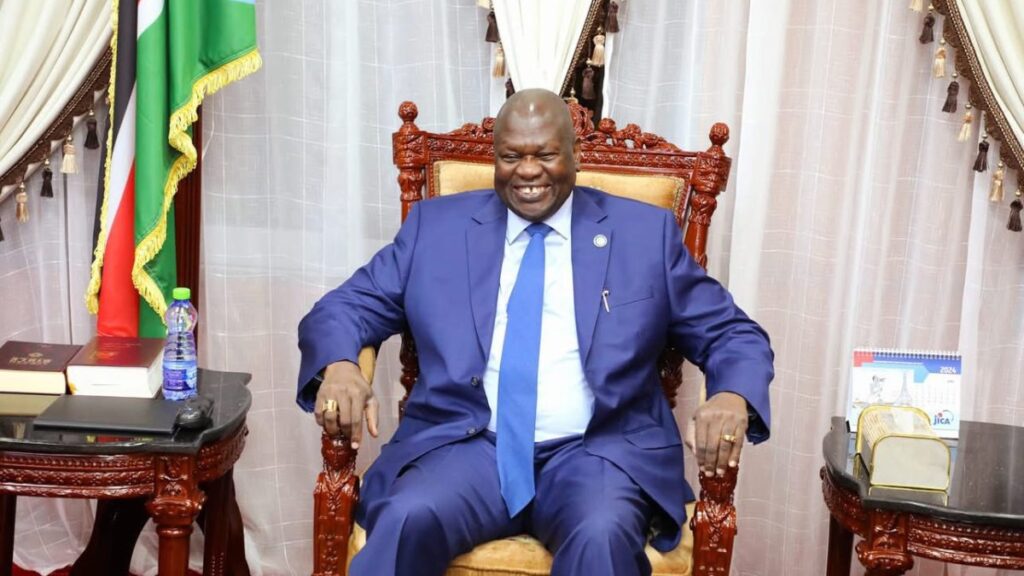South Sudan’s political landscape is currently at a boiling point as the high-profile trial of Vice President Riek Machar unfolds. Accused of terrorism, treason, and crimes against humanity for his alleged role in a deadly military garrison attack, Machar’s trial has deepened political fault lines in the nation, with repercussions that extend far beyond the courtroom.
The trial, which began in late September 2025, is widely seen as a major political maneuver by President Salva Kiir’s government to neutralize its primary opposition leader. Machar, who has denied the charges, is facing the possibility of life in prison. The trial has become a flashpoint, intensifying divisions within the country, particularly as it is perceived by many as politically motivated.
Supporters of Machar argue that the trial is an attempt to scapegoat him for the government’s broader failings, including economic collapse and spiraling inflation. For them, the charges are less about justice and more about silencing a political rival. The proceedings have polarized South Sudanese citizens, with some believing in the need for accountability and others seeing it as a tool of repression.
The trial is not only politically charged but also steeped in ethnic tensions. Machar is from the Nuer ethnic group, while Kiir and much of his administration belong to the Dinka group, the largest in South Sudan. This division has already manifested in violent intercommunal clashes, and many fear that the trial could escalate these tensions further, driving the country deeper into ethnic conflict.
The trial’s significance goes beyond Machar’s fate. It is seen by some as a test of South Sudan’s commitment to the rule of law and accountability for public officials. However, for others, it is a grim reminder of the unaddressed issues that continue to plague the country, including corruption, political instability, and widespread humanitarian crises.
As Machar faces these serious charges, many South Sudanese remain divided on the trial’s fairness and its potential impact on the peace process. With the country’s future hanging in the balance, this trial could either help set the stage for real justice or further entrench divisions that have defined South Sudan’s tragic history.

